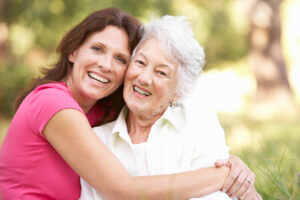Why Is My Senior Mom’s Voice Changing?
Changes in our voices are a normal part of aging and usually nothing to worry about. But as people get older, their vocal difficulties might take on new forms, so it’s crucial to tell the difference between slow, natural changes and medical interventions.
It’s impossible to be prepared for every situation as you take care of your aging mom or dad, but the more you know about the aging process, the more prepared you will be for emergencies or knowing when you should be concerned about a change.
If your mom needs extra help around the home or your senior doesn’t want to rely on adult children, professional help may be available for you; people like home care can help a senior age in place and also watch for any significant changes. Here are a few things you should know about voice changing in seniors.
Why Do Senior Voices Change?

Home Care Alexandria, VA: Voice Changes
Seniors often experience vocal fatigue and changes in their voice quality. Some of these changes might include a lessening or heightening of the effort necessary to produce tones in the upper or lower registers of the voice. This is usually merely a consequence of getting older since healthy functioning depends on the voice cords’ ability to shut and vibrate in unison.
However, as we get older, our bodies undergo several changes, including a natural decline in muscle mass. Muscle atrophy may damage your vocal cords, making speech more effortful and tiring. Additionally, the elderly may be more susceptible to voice injuries caused by overuse.
Muscle atrophy affects not just our strength but also our lung capacity. The capacity to communicate may be affected by a variety of factors, including alterations to our facial muscles and teeth. Presbyphonia is the term for the changes in an aging person’s voice that come over time.
Understanding Sudden Voice Changes
However, abrupt hoarseness in the elderly is a different story since it may be caused by various factors. For instance, spasmodic dysphonia, a larynx disorder, is the most common cause of a hoarse voice in the elderly.
Voice tremors, vocal fold bending, unilateral fold paralysis, and benign vocal lesions are frequent causes of hoarseness. If a member of your family is experiencing voice-related problems, it is essential to have them evaluated by a medical professional so that the underlying reason may be determined.
Possible causes vary from heredity to overuse, and a doctor will be able to narrow down the list of possible causes. If a senior needs help to get to an appointment, this is something that the right home care professional can do. It’s time to help your senior age in place easier.
Presbyphonia and other vocal alterations may severely hinder a person’s quality of life by opening doors to discrimination in social and professional contexts. Behavioral treatment has been demonstrated to help alleviate mild symptoms in many cases with muscle-related vocal problems. Assistive technology, however, is a common element of the aforementioned methods.
